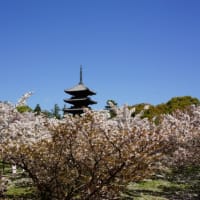There was a paper I discovered this morning when I was searching for something.
This paper and its author were utterly new to me.
I was relieved to learn that the author was a graduate of the University of Tokyo's Faculty of Economics and an active member of ITOCHU Corporation, in addition to the excellence of his paper.
After I entered the workforce, I met two of my best friends for life.
They were both employees of ITOCHU Corporation.
They were both extremely talented businessmen, which is why they both held critical positions in the company.
In recent years, the company's name has appeared in the discourse alongside Uichiro Niwa's pro-China statements, which has left me feeling uncomfortable.
I felt that the strength of a trading company lies in the fact that every one of its employees is, in a sense, a manager of a small business.
Their ability to look at the balance sheets of their clients and instantly grasp the company's state was astounding.
He can also check every detail of a large construction quotation and determine the price's appropriateness, something that even Japan's leading general contractors would be appalled.
I felt that their strength was the trinity of intelligence, power, and energy that made up Japan's strength.
The corporate message of ITOCHU Corporation, "One merchant, a myriad of missions," hangs on the back net of the Jingu Stadium, Yakult's home field, and I always thought it was exactly right whenever I saw it.
The author of the opening paragraph, Mr. Takehiko Aoyagi, has a brief biography.
He was formerly a professor at the International University of Japan.
He was born in Kiryu City, Gunma Prefecture, in 1934. He graduated from Kiryu Prefectural Kiryu High School.
He graduated from the University of Tokyo Faculty of Economics in 1958 and joined Itochu Corporation.
He served as the General Manager of the Food Products Department of the Sydney Branch of ITOCHU Corporation, the General Manager of the Agricultural Products Department of the Head Office of ITOCHU Corporation. As a Director of ITOCHU Systems Development Corporation.
From 1985 to 1997, he was President and Chairman of Nippon Telematique, a joint venture between ITOCHU and NTT.
From 1995 to 2006, he was the deputy director and professor at the International University of Japan GLOBECOM, and from 2006 to 2016, he was a visiting professor at the same university.
His research areas include economics, business administration, finance, information society, law, international politics, and security theory, and he is a self-appointed generalist in the social sciences.
He is the author of "Videtex Strategy" (Information Science), "Cyber Surveillance Society" (The Telecommunications Advancement Association), "Personal Information Overprotection Destroys Japan" (Softbank Shinsho), "Privacy Research in the Information Age" (NTT Publishing), "Roosevelt Betrayed the American People and Dragged Japan into War" (Heart Publishing), "The History of Japan Twisted by America to Psychologically Disarm the Japanese" (Heart Publishing), and many others.
I stumbled upon a paper by Aoyanagi that won an award of excellence in the APA Group's seventh annual "True View of Modern History" competition essay.
It is a must-read for the people of Japan and the rest of the world.
Today, in his opening chapter, I found a passage that I found really unacceptable last night that perfectly sums up Arima's brain structure and the other NHK employees who control NHK/Watch9.
First of all, let me introduce the part.
The title of his article itself describes the brain structure of Arima and the rest of the NHK staff.
Japan's greatest enemy is a 'masochistic view of history.'
~Escape the spell of the WGIP
Chapter 1: Rootage of a masochistic view of history
The U.S. Brainwashing Policy: The Origin of the Masochistic View of History
After the war, the United States implemented a mind-control policy to brainwash the Japanese people into feeling guilty about the Greater East Asia War.
This policy's purpose was to imprint the notion that because the Japanese militarists had lied and deceived their people to start a war of aggression, they had been subjected to air raids by the Allies and even dropped atomic bombs on them as punishment for their deception.
It was the propaganda that the military tribunals in the Far East were internationally legal and morally justified.
Thus, a fiction was built up that the Japanese people were gravely responsible for their actions.
The sense of atonement that emerged from this fiction became a masochistic view of history among the Japanese people, who possessed a spirit of graceful remorse.
It has continued to amplify and reproduce itself to the present day.
When the Japanese apologized, they assumed that they were doing justice and that it was too noble.
It was even accompanied by a kind of sweet pleasure as well as a tragic feeling.
Any keen observer will notice that the parts of the text that I have emphasized in black are the very structures of the brains of Arima, Okoshi, and others, or even Eriko Ikeda and others.
This article will continue.
最新の画像[もっと見る]
-
 As your company has become one of the world's leading Internet companies thanks to the Internet
9時間前
As your company has become one of the world's leading Internet companies thanks to the Internet
9時間前
-
 貴社が摘発すれば、この犯罪者は重罪となって厳罰に処されます。そうして初めて、或いは、そうしてのみ、この犯罪は止むでしょう。
9時間前
貴社が摘発すれば、この犯罪者は重罪となって厳罰に処されます。そうして初めて、或いは、そうしてのみ、この犯罪は止むでしょう。
9時間前
-
 私がGooに投稿する章ごとに、この犯罪者は、この様な手口で検索妨害の犯罪を信じ難いほど執拗に侵し続けています。
9時間前
私がGooに投稿する章ごとに、この犯罪者は、この様な手口で検索妨害の犯罪を信じ難いほど執拗に侵し続けています。
9時間前
-
 ist es die Pflicht und Verpflichtung Ihres Unternehmens, solche Kriminellen auszumerzen
10時間前
ist es die Pflicht und Verpflichtung Ihres Unternehmens, solche Kriminellen auszumerzen
10時間前
-
 commit the crime of search interference with such unbelievable persistence
10時間前
commit the crime of search interference with such unbelievable persistence
10時間前
-
 unless your company exposes them and imposes severe criminal penalties.
10時間前
unless your company exposes them and imposes severe criminal penalties.
10時間前
-
 it is your company's duty and obligation to eradicate such criminals.
10時間前
it is your company's duty and obligation to eradicate such criminals.
10時間前
-
 Opublikuj ponownie! Mentalna renowacja" Japonii przez GHQ...Zniekształcone środowisko akademickie
10時間前
Opublikuj ponownie! Mentalna renowacja" Japonii przez GHQ...Zniekształcone środowisko akademickie
10時間前
-
 crimes will not disappear unless your company exposes them and imposes severe criminal penalties
10時間前
crimes will not disappear unless your company exposes them and imposes severe criminal penalties
10時間前
-
 Google or blog operator Docomo, please expose the methods used by these criminals
10時間前
Google or blog operator Docomo, please expose the methods used by these criminals
10時間前









